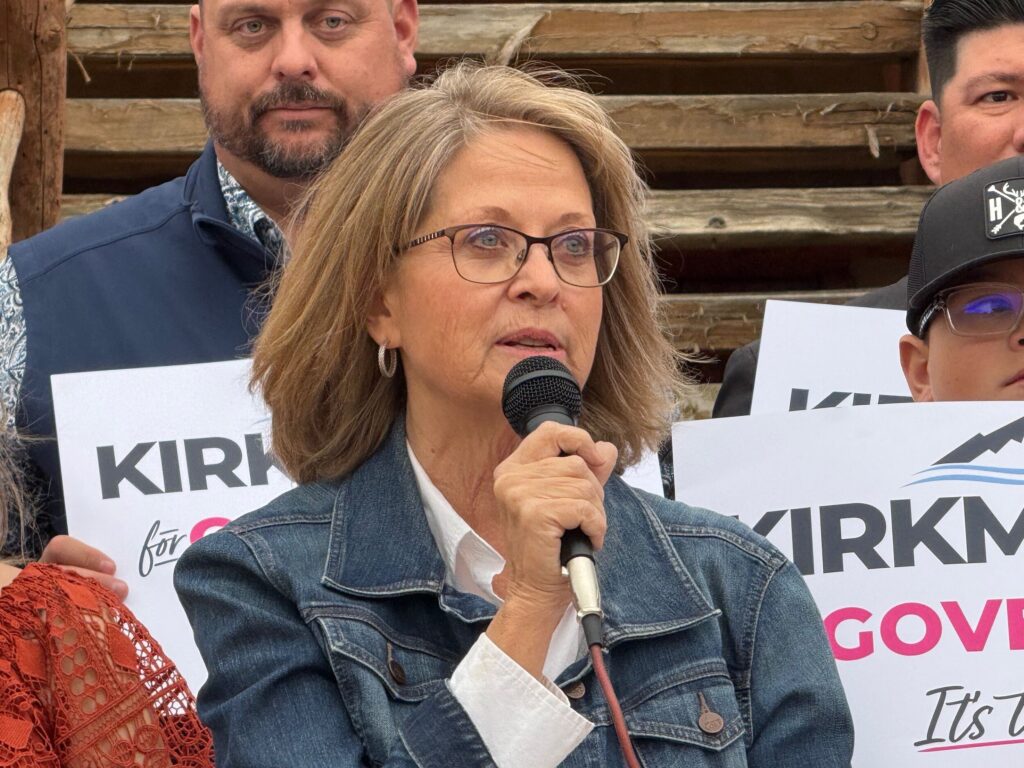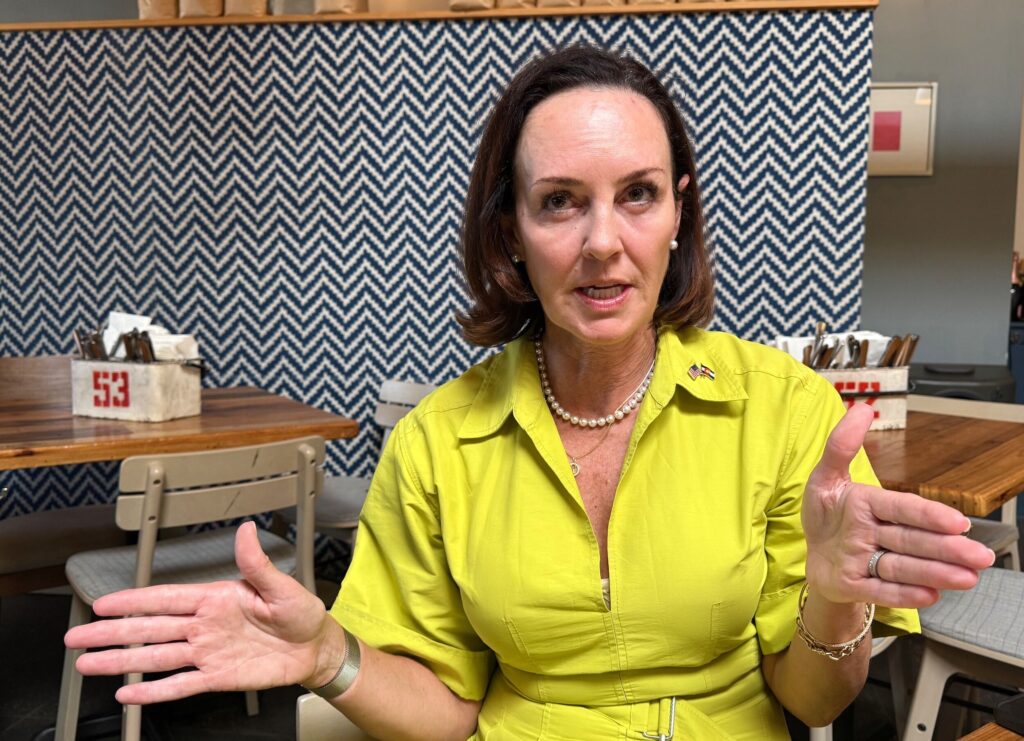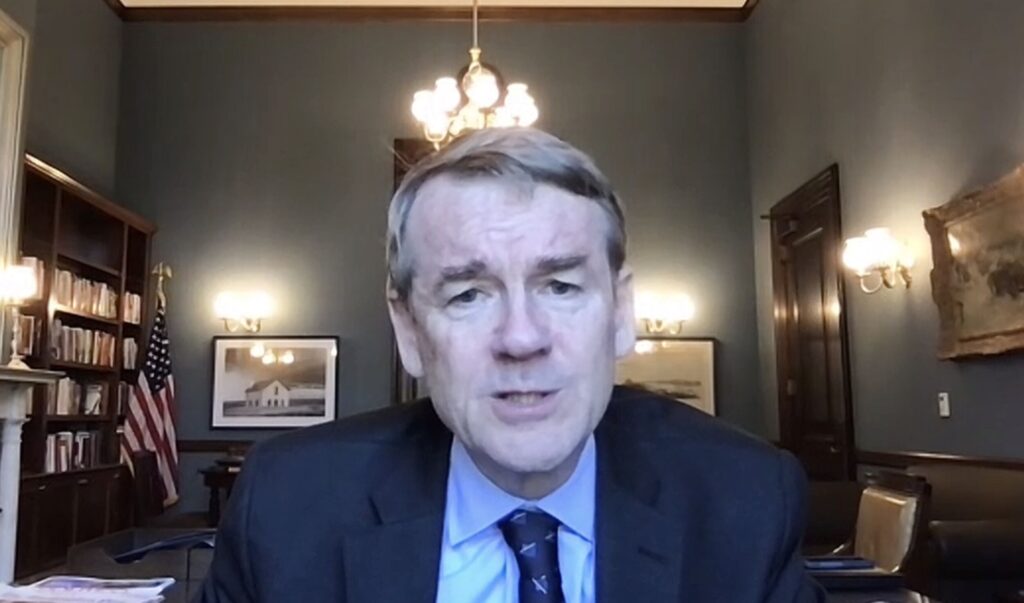Polis: More than 400,000 Coloradans could lose Medicaid with proposed Republican bill
More than 400,000 Coloradans are at risk of losing their health coverage if a Republican bill in Congress is passed, Gov. Jared Polis said Tuesday at a family clinic in Lafayette.
The governor’s visit to Clinica Family Health in Lafayette on Tuesday was part of the “National Medicaid Day of Action,” which aims to mobilize health care providers and advocates to push back against cuts to the Medicaid program implied in the Republican-led House budget resolution passed in late February.
The U.S. House budget resolution calls for $880 billion in deficit reduction over 10 years from the section of the budget overseen by the Energy and Commerce Committee. Republicans have maintained that the word “Medicaid” does not appear in the resolution, but they would need to reduce Medicaid to hit the $880 billion target for programs under the committee’s jurisdiction, given that President Donald Trump has ruled out changes to Medicare and other entitlement programs.
The GOP is weighing policy options, such as work requirements and Medicaid provider taxes, that would cut federal funding for the program without disrupting enrollee benefits. Democrats, meanwhile, have emphasized defense of Medicaid as their chief health policy position.
Critics of Medicaid have argued that the Affordable Care Act expansion, in particular, means the federal government is spending exorbitantly for a population that it was not supposed to cover. They said the federal match for able-bodied adults has created a “perverse incentive” that diverts funds from people who actually need the coverage.
Additionally, they also pointed to what they described as runaway Medicaid spending, in which states see surges in costs. Others have argued that running trillion-dollar deficits means successive federal governments have sacrificed the future stability of generations of Americans in order to pay for today’s entitlement programs.
“These proposed cuts would devastate our hospitals, urban and suburban safety net hospitals,” Polis said. “And that also would increase costs to all Colorado.”
In Colorado, 1.1 million people — including 431,800 children — depend on Medicaid.
Polis was joined by U.S. Rep. Joe Neguse, D-Lafayette. The two toured the health center before making remarks.
“Make no mistake, it would have a dramatic impact on the people of our state,” Neguse said.
Patients who receive their care in clinics like Clinica Family Health, Polis said, are more likely without access to Medicaid to be seen in an emergency room, driving up health care costs for everyone.
Colorado’s uncompensated care costs have grown faster than other operating expenses, driven largely by increases in charity care, according to an analysis by the Colorado Department of Health Care Policy & Financing.
Uncompensated care refers to healthcare services provided by hospitals and medical providers without receiving payment either from a patient or insurance. This includes charity care, which is either free or provided at a discount to patients that meet certain financial criteria, and bad debt, when a patient does not pay for the care received.
Colorado hospitals provided nearly $545 million in uncompensated care in 2023, the latest data available. Charity care comprised roughly 60% of those costs or $330.4 million — a 1.4% year-over-year increase.
This is on top of an already bleak financial outlook for the state’s hospitals.
Operating expenses in 2023 outpaced patient revenue, growing 6.5% compared to 4.8%, respectively.
Denver Health, the largest safety-net hospital in Colorado, accounts for 26% of the state’s total uncompensated care costs.
Founded in 1977, Clinica Family Health is a federally qualified health center, which receives federal funding on a sliding scale to provide comprehensive healthcare services to underserved populations. The clinic serves patients in Adams, Boulder, Broomfield and Gilpin counties.
Medicaid enrollment is renewed annually but was suspended during the COVID-19 public health emergency, which ended on May 11, 2023, triggering what was called an “unwind.”
Initially, state officials estimated about 325,000 Coloradans would lose their Medicaid coverage.
Nearly 500,000 did.
More than 40% of the 60,000 medical patients that Clinica Family Health serves are uninsured, said Simon Smith, the organization’s president and CEO.
On Tuesday, Smith said that Clinica has seen an 8% drop in Medicaid and 6% rise in the uninsured from pre-pandemic levels.
“We have absorbed this impact in a little over a year,” Smith said. “It has already meant terrible choices.”
Clinica officials said the center has already eliminated more than 100 jobs, which represents roughly 15% of the clinic’s workforce.
Smith said further Medicaid cuts would lead to “an existential crisis.”
“Reductions in Medicaid will lead safety net health care providers across our state to reduce programs and close our doors,” Smith said. “All this will ultimately lead to more expensive care and worse health in our community.”
Medicaid, funded jointly by federal and state governments, covers one in five Americans. It cost the federal government $618 billion last year, according to the nonpartisan Congressional Budget Office, making it the third largest line item after the Medicare program for older Americans and the Social Security retirement program.
The Associated Press, Reuters and Washington Examiner contributed to this article.











